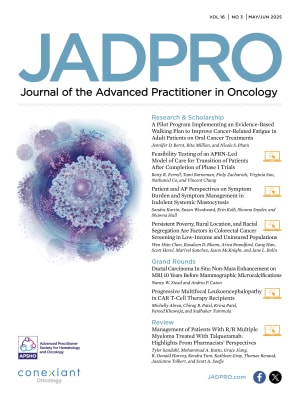Abstract
Daratumumab is a human monoclonal antibody targeting CD38 that is used in the treatment of multiple myeloma. In addition to being a target for cancer-related treatment, CD38 also plays a significant role in the immune response to infection. CD38 deficiency can increase susceptibility to several bacterial infections. This article discusses the case of a 52-year-old female with a history of IgG multiple myeloma status post autologous stem cell transplant with relapse who was receiving therapy with daratumumab, lenalidomide, and dexamethasone. She presented to the emergency department with a history of 3 to 4 days of generalized weakness, poor appetite, nausea, vomiting, watery stools, and fevers. Her symptoms did not improve with initial fluid resuscitation and broad-spectrum antimicrobials; instead, she experienced progressive neurological decline. This case illustrates how utilizing targets for cancer-directed treatments can also affect immune function, which may leave patients susceptible to unique infections that may not otherwise be commonly encountered. Therefore, advanced practitioners must understand the functional role of these targets and the sequelae that could occur when expression is altered by pharmacological therapies to allow for expeditious recognition and management.







